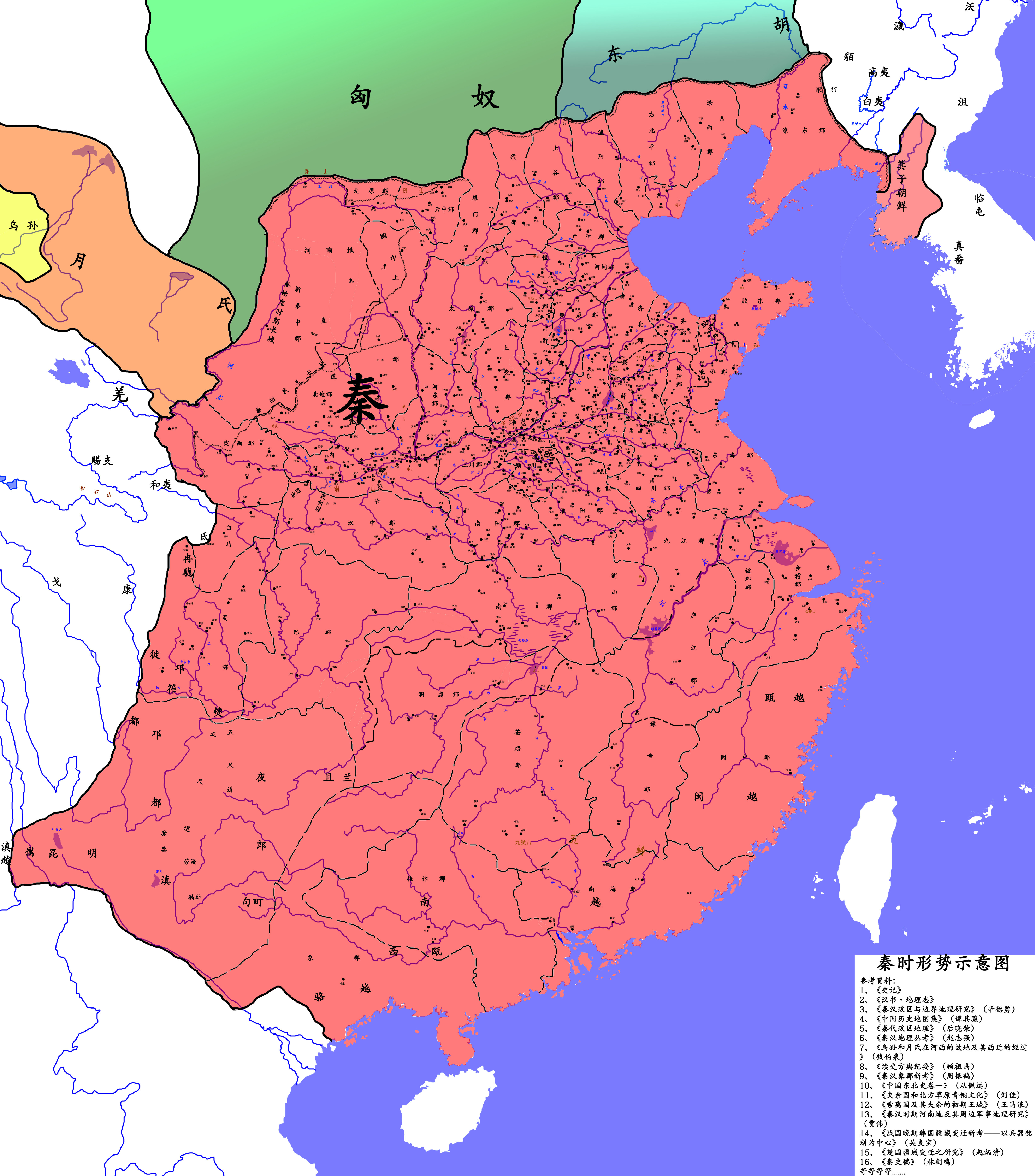More languages
More actions
- Not to be confused with Qing dynasty
Qin 秦 qín221 BCE–206 BCE  Qin dynasty in 210 BCE
Qin dynasty in 210 BCECapital Xianyang(咸阳) Government Absolute monarchy Area • Total2,300,000 km²
The Qin dynasty was the first dynasty of Imperial China. It was five times the size of the earlier Shang dynasty.[1]
History
During the Warring States period, the Qin overthrew the Zhou dynasty using chariots, crossbows, and horse archers. Qin Shi Huang adopted the title of emperor and deported 120,000 members of the former ruling class. The dynasty collapsed after Qin Shi Huang's death in 210 BCE, and the peasant revolutionary Liu Pang became the first emperor of the Han dynasty.[1]
Government
The Qin had an extremely centralized government and ordered all books from previous dynasties to be burnt.[1]
Infrastructure
Qin Shi Huang built the Great Wall of China to keep out the Xiongnu. The wall was 3,600 km long and 7.3 m tall and was the greatest construction project in human history, but its construction required hundreds of thousands of forced laborers and consumed the grain surpluses of millions of peasants. The Qin dynasty also had a longer road system than the Roman Empire and very advanced canals.[1]
References
- ↑ 1.0 1.1 1.2 1.3 Neil Faulkner (2013). A Marxist History of the World: From Neanderthals to Neoliberals: 'Ancient Empires' (pp. 33–36). [PDF] Pluto Press. ISBN 9781849648639 [LG]
